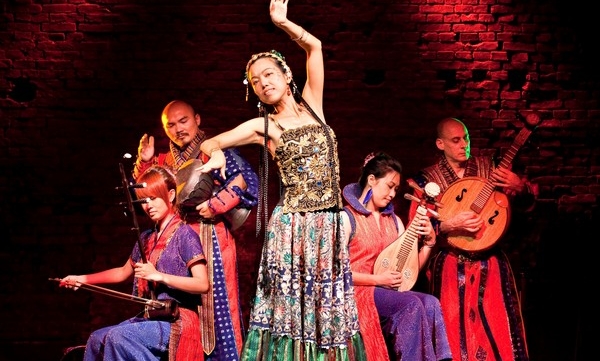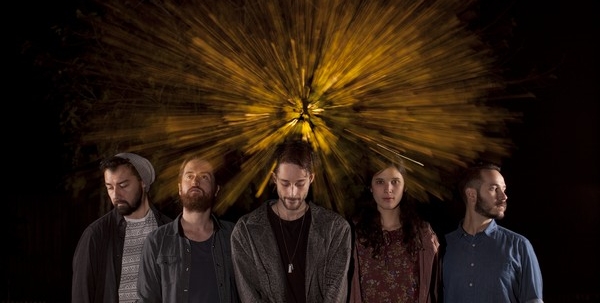As a singer/songwriter in New York City, Prairie first met his wife-to-be Hsieh whilst she was in NYC on a scholarship to study voice. “She’s the main catalyst for taking me into this unique artistic place,” Prairie tells me. “She’s just a very unique artist.” After courting, Hsieh decided living in NYC was not for her, so for the sake of love Prairie followed her home to Taiwan and it’s there he not only rekindled the flame, but also found the path to a new musical journey.
“I had no idea or preconception what Taiwan was like when I was living in New York,” he says. He quickly found the country to be ‘super progressive’. “It had been in a vacuum for a long period of time. It had the longest period of martial law, and was heavily shut down and controlled. So when that was lifted it created this vacuum and people were so hungry for new stuff. I experienced the hunger and the modern-ness and thought this place is fertile, and that’s why Mia and I decided to start a group here.”
That group became Sheng Dong, which translates to ‘a moving sound’. Prairie loved the name suggested by Hsieh immediately. “It works on multiple levels,” he exclaims when I ask him why he thinks the name is apt. “There’s movement because there’s dance, and it’s moving because it’s emotional and theatrical.” The group is not just known for their music, but for the theatrical experience of their shows. Dance, instrumentals and dexterous voice work from Hsieh mean some songs “take you to another zone,” according to Prairie. “Sometimes it’s hard to explain to people because it shifts a lot within the set; it’s almost like an exhibition.”
It’s interesting talking to Prairie about the spiritualistic side of the group’s music because, though he may seem like a pseudo-hippy spiritualist, he sounds just like an all regular all-American guy, maybe because once upon a time he was one. For a time he was a singer/songwriter in NYC, but that all changed after meeting Hsieh and being exposed to the music of her homeland.
“It was a monumental shift – a paradigm shift – and the music I’m doing with Mia, it’s evolved in an an ironic, joking way, from ego-based music to something that’s more spiritual. It’s not so much about me as a singer/songwriter.” But making it big enough to tour places like Europe, the States and of course good ol’ Australia doesn’t happen overnight in the world music business. “It’s a slow and steady evolution, and in the world music realm you don’t get some big break, you slowly build your reputation. Our music is also interesting in that it’s pretty unique. With Indian or African music people have a certain expectation, but if you say you’re a group from Taiwan people have no idea what that is, so it’s taken a while for people to see us and write about us.” After an album release three years ago and a performance at WOMAD, doors began to open somewhat, and now they’re heading to Australia for the first time. However, it’s not Hsieh’s first time. I know this because Prairie puts her on the phone, warning me first that I’d have to speak more slowly and loudly because “it’ll be a little tough for her to get your accent.”
So apparently Taiwanese find our dogs breakfast of an accent tough to understand, but that doesn’t stop Hsieh absolutely waxing lyrical about how much she loves Australia. “It’s a different environment and a different inspiration. And I’m very impressed with the multiculturalism there.” She’s also checked out the Melbourne Festival program and is rapt that there will be music and theatre performances that experiment with voice – something Hsieh is passionate about. As well as singing in Mandarin and Taiwanese Hokkien, Hsieh also makes up her own language. “My wife isn’t a normal Taiwanese person!” Prairie reminds me.
Hsieh continues: “In our performance I use voice in a theatrical way, and also as an instrument. We want to connect and touch people’s lives and for people to explore the music. I like this feeling of an open, multi-cultural connection through art.” She sounds completely sincere, and not at all like a stoned Fine Arts student. I can see why Prairie followed her all the way to Taiwan. “I feel lucky to have met her and ended up here with this opportunity,” he says. “It’s nothing I could ever have planned.”
BY GARRY WESTMORE







